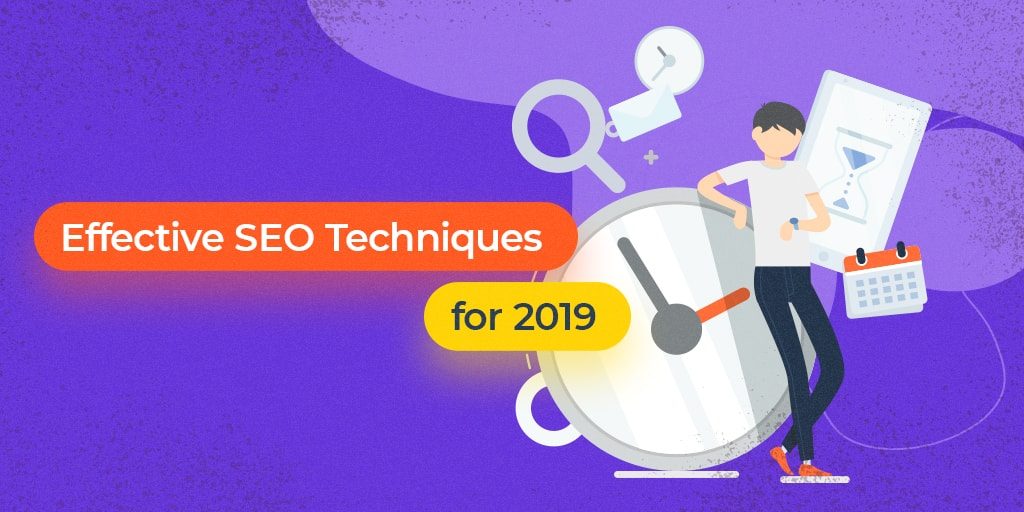If you sell products online, having an optimized website is essential for attracting more customers and increasing your sales.
One of the most effective ways to optimize your website is by applying the strategies of search engine optimization (SEO).
SEO will enable your website to rank better on search engines like Google, which can help you reach a wider audience. But the benefits of SEO go far beyond rankings.
Read on to find out why SEO is so important for ecommerce sites and some tips on how to get started with SEO for your site.
5 Reasons your Ecommerce site needs SEO

1. Attract more traffic to your website
Using SEO techniques on your website will help you rank better on the search results pages of Google which will likely draw in more traffic.
This gives you an opportunity to get ahead of competitors and bring a wider audience to your website. More visibility is the first step towards growing your sales.
2. Increase your sales with SEO
SEO can help increase traffic to your website, but not just any traffic. By targeting the right keywords and search terms, you can reach traffic that’s interested in what you’re offering or perhaps even ready to buy.
People using Google are actively searching for something as opposed to seeing an ad pop up when they’re doing something unrelated like scrolling on Facebook.
When you’re attracting a highly targeted audience, sales are likely to grow. Other SEO techniques, like improving user experience and using social proof, can also help drive up sales.
3. Improve user experience
Google rewards websites that are optimized for user experience (UX). That means, focusing on things like load speed, navigation, and mobile compatibility can help you rank better.
Beyond better visibility, your efforts towards a better user experience can help improve conversion rates, customer loyalty, and brand reputation.
4. Access valuable visitor information
Part of the SEO process is tracking visitor activity on your website so that you can better optimize site.
You might collect a range of valuable data points like how many visitors you get, where they’re located, whether they come to your site organically or through an ad, how long they spend on a page, whether they click through to another page on your website and so on.
By analyzing this data, you can get to know your audience even better which can lead to more effective marketing strategies.
5. Get long term results
SEO isn’t a quick-fix solution. It’s actually an ongoing solution that can have impressive results long term.
If you’re looking for a big boost in sales quickly, consider running some PPC (paid-per-click) campaigns while also working on your SEO.
5 Tips for nailing SEO on your Ecommerce site

1. Focus on search intent
You should optimize each page on your website for a particular keyword. This could be a broad keyword like “SEO Perth” or a more specific phrase like “What is SEO marketing”.
When conducting keyword research, it’s crucial that you don’t just focus on the words people are typing into Google, but actually dig down into the intent behind the search.
When you understand why people are searching for a particular keyword or phrase, you can better tailor your content to give them what they’re looking for and lead them towards conversion.
2. Publish regular blog posts
Keeping a blog on your website is a great way to rank for more specific search terms and draw in a wider audience.
For example, an online gift store might create blog posts to target keywords like: “Best gifts for Mum”, “What to give for a housewarming” and “eco-friendly gifts”.
Offering up value-adding information to your audience can build your brand’s authority and reputation. Just make sure the info is valuable, easy to read, and not overly stuffed with keywords.
3. Speed up your pages
Nothing sends people running from your site like slow load times. Not only does it give your users a poor experience, but load time can also actually affect your rankings on Google.
Google’s algorithm prefers websites that have a good user experience, and fast load times is a big factor in this.
There are plenty of techniques to speed up your site, such as compressing your images, deleting any plugins you don’t use, reducing the number of HTTP requests, and minifying Javascript and CSS files.
4. Collect and display user reviews
Letting customers review your products may feel daunting, but it can actually be a great way to drive up conversions. People are more likely to make a purchase after they have read reviews from other customers.
Displaying reviews can also improve your brand image and increase customer trust if you’re doing things right. Plus, if Google sees that you’re a trustworthy website, it’s more likely to reward you with higher rankings.
5. Work on link building
When there are quality links pointing back to your website, it tells Google that your site is trustworthy.
There are plenty of ways to legitimately do this, including writing guest posts, issuing press releases, creating infographics and sharing them on social media, and creating internal links on your website.
Whatever you do, don’t take shortcuts when it comes to link building as Google will penalize you. Poor quality links will negatively impact your rankings, visibility, and web traffic.
Don’t be afraid to ask for help
SEO is a hugely effective marketing strategy for eCommerce sites, but it can be pretty tricky to get right if you’re just getting started.
If you’re feeling overwhelmed, consider reaching out to an SEO agency that can help you get great results without the headache. Knowing that your SEO is in safe hands can free you up to focus on what’s most important to you.








